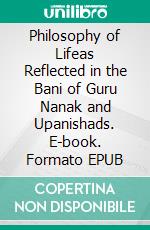Kant eBooks
eBooks di Kant di Formato Mobipocket
Fundamentacion de la metafisica de las costumbres. E-book. Formato Mobipocket Kant - Angelo Pereira, 2015 -
Representa el momento más decisivo en el conjunto de la reflexión kantiana. La filosofía moral, afirma Kant, se encuentra siempre en una situación precaria. Su propia dignidad no le permite depender de la ideología, que perpetúa el estado de infantilidad moral del hombre, ni fundamentarse en la antropología, que transforma la ética en un asunto de mera utilidad. El problema de una fundamentación moral se convierte en el de la autofundamentación racional de la misma. Qué significa ser moral y por qué se debe ser moral son los interrogantes decisivos alrededor de los que se vertebra una reflexión que, muy lejos de intentar una guía ética para el género humano, le coloca ante su más importante perplejidad: la moral consiste en la superación del narcisismo del hombre preso en el utilitarismo ético. Se trata, en suma, de recuperar la dignidad racional del ser humano.
Philosophy of Lifeas Reflected in the Bani of Guru Nanak and Upanishads. E-book. Formato Mobipocket Kanta Arora - D.K. Printworld, 2019 -
About the BookThis volume illustrates, compares and discusses as to how Guru Na¯nak with his transcendental exposition, sharp skill, argumentative capability and common poetic language further enriched, explained, simplified, modernized and expressed various theological and philosophical concepts elucidated in Upanis?ads for the understanding and adaptation of a common man. Upanis?ads are “breath of eternal” and hymns of Guru Na¯nak are “a divine song of life”. Guru Na¯nak’s exuberance of love and search for God and godly people was not confined to any religion or religious institution. He revolted against the ritualistic mind of a bra¯hman?a. He was essentially a man of God whose love and quest for search for the Ultimate Truth knew no limits. In the pursuit of this search he enjoyed a reach to the state of void meaning a state where there is no distinction between the object and the subject – the knower and the known. He was a protagonist of Bhakti tradition and stressed more on bhakti or devotion to God. He taught the Sahaja-Patha or Su¯rata S´abada Yoga that easily takes one straight to the Lord by spontaneous concentration of mind.Both hymns of Guru Na¯nak and Upanis?ads explain that the real aim of human life is to attain liberation from the repeated coming and going in incarnations, which can be attained by adequate karma, knowledge and disciplined meditation.About the AuthorBorn in a small town of Chamkaur Sahib, Kanta Arora, MA, LLB, PhD, spent her childhood within the premises of Ghari, where Sri Guru Gobind Singh had sacrificed his two sons. This had left a profound influence of Guru Na¯nak’s teaching on her.Having done graduation and post-graduation from the Punjab University, she joined Govt of India and held various positions in Finance and Accounts Dept of different ministries. After superannuation, she became a regular student of theology and made a comparative study of religions and consciousness studies and got her PhD for the thesis “Philosophy of Life: A Study in the Light of Bani (Hymns) of Guru Nanak and Upanishads” from the Department of Sanskrit of Dayalbagh Educational Institute (Deemed University). She has participated in many national seminars, and international conferences organized by the Center for Conscious Studies, University of Arizona, USA.

